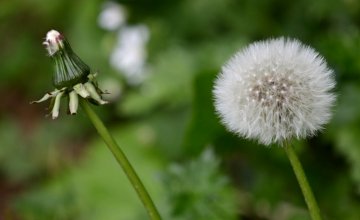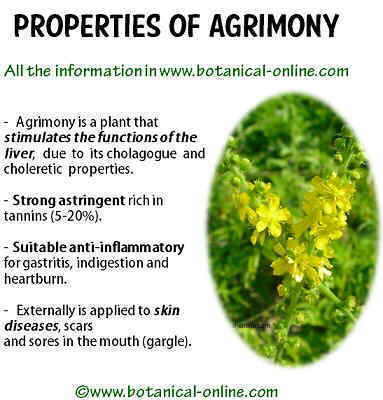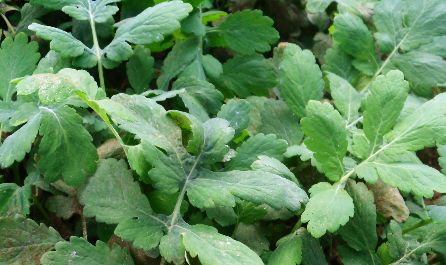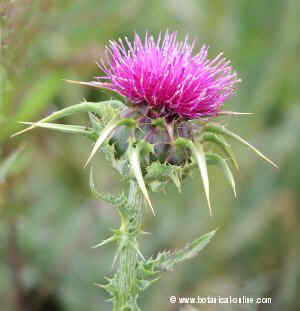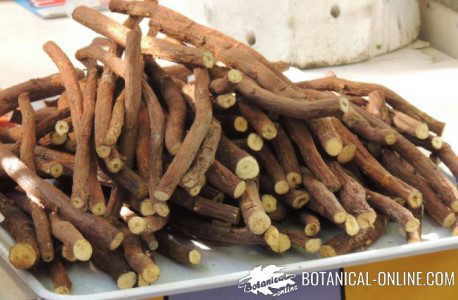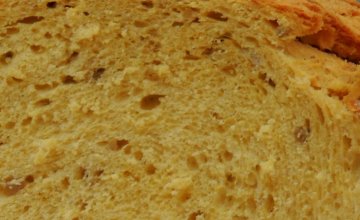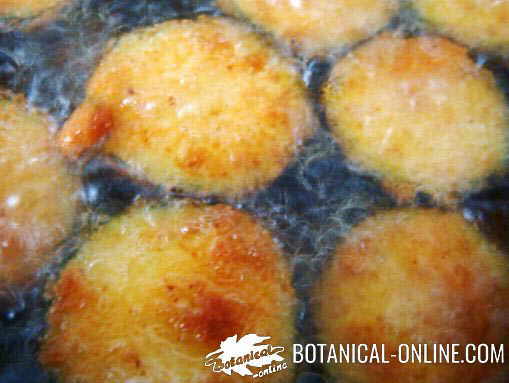Contents
MEDICINAL PROPERTIES OF POPPY
Remedies with red poppy for internal use
- Respiratory tract: Poppy, for its mucilage content exerts a softening and antitussive effect on the respiratory
 mucosa. At the same time, considering its content in alkaloid rhoeadine, helps fight spasms and provides expectorant and pectoral properties. This makes it very interesting in the treatment of respiratory diseases, especially in regard to the following anomalies:
mucosa. At the same time, considering its content in alkaloid rhoeadine, helps fight spasms and provides expectorant and pectoral properties. This makes it very interesting in the treatment of respiratory diseases, especially in regard to the following anomalies:
- Asthma: Using preparations of this plant helps you breathe easier and significantly decreases cough. (15-minute infusion of one teaspoon of dried petals in a liter of water. Take a glass half-hour before breakfast in the morning and the same in the evening half an hour before dinner)
- Cough: It can be used for coughs caused by many diseases of the respiratory system. (Infusion of half a tablespoon of dry petals per liter of water. Drink three cups a day) (Take poppy syrup for cough)
- Bronchitis: Its properties are also useful for chest pain and persistent cough that usually accompanies bronchitis (Infusion of some fragments of poppy petals per cup of water. 2 cups a day.) (Decoction for 6 minutes of 2 capsules per cup of water. 6 tablespoons at bedtime)
- Cold: The above treatment is very useful in case of cold.
- Sore throat: The emollient properties of the poppy can be used to relieve pain and discomfort in the throat caused by tonsillitis. (Infusion for 10 minutes of a tablespoon of dry petals in a liter of water. Drink a couple of glasses a day) (gargles with a strong infusion also proves very effective in the treatment of tonsils itching caused by sore throat (See more information in the external use of this plant)
- Nervous system: However, poppy is recognized in herbal medicine for its sedative properties, well suited to treat many abnormalities of the nervous system, even those that apparently manifest as physical illnesses such as stomach ailment caused by problems with “nerves in the stomach “, responsible for many problems of indigestion. (Infusion of half a teaspoon of dried petals per cup of water before eating can help solve many cases of stomach cramps)
The previous preparation also can be very useful in cases of headache or migraine caused by emotional problems.
The advantage of this plant compared to other stronger narcotics such as opium is that it has no side effects or addictive because it does not contain morphine. Rhoeadine is slightly sedative. Among the many sedative applications of this plant plant, we can consider the following:
- Insomnia: The hypnotic properties of the poppy can be used to treat insomnia. The preparations of this plant will allow sleep to people who have trouble sleeping. (In recurrent cases, infusion of two teaspoons of dried petals per liter of water. Drink three cups each day, especially once before bedtime) (In mild cases: Infusion of a pinch of dried petals per cup of water. Drinking a cup before bedtime)
- Nervousness: Poppy can help calm down jangled nerves. Just make a tea with half a teaspoon of the petals of this plant for a cup of water. We’ll drink a couple of cups each day, trying to drink the second one just before bedtime. They can be sweetened with a little honey.
- Anxiety: The previous treatment can be used to treat anxiety disorders.
External use preparations with red poppy
- Throat problems: Used externally, its emollient properties are very appropriate for the treatment of diseases of the throat. We can apply gargles with an infusion of two teaspoons of dried petals per liter of water. This treatment will be effective to reduce inflammation and reduce pain in cases of Sore throat, pharyngitis or laryngitis.
- Treatment of wrinkles: The infusion of poppy petals is useful to avoid the appearance of wrinkles on the face. Just carry out a fully loaded infusion in which you dip a cloth to be applied to your face for a few minutes before bedtime.
- Conjunctivitis: In case of conjunctivitis, you can use an infusion of one teaspoon of petals in half a liter of water. Filter well and wash your eyes with this mixture.
Other uses of red poppy
- Booster of tisanes: Poppy is rich in a pigment called mecocianin that stains easily when dissolved in a liquid. This is used to color many medicinal preparations.
- Edible wild plant: Poppy leaf is edible when tender, that’s to say, before flowers are born. To remove the alkaloid content, they should be boiled. The seeds are also edible and are commonly used in the confectionery industry and to flavor pastries preparations.
- Industrial applications: From poppies burning oil is extracted
Collecting and conservation of red poppy flowers
Flowers and capsules of poppy can be collected from March to late summer, though they are more abundant during spring, especially in the month of May. They should be dried in the shade and stored in a dry and shady place in bags or glass jars. The seeds should be removed from the capsules.
Toxicity of poppy
Used in appropriate doses, it does not provide toxicity or contraindications. However, since there are very few studies on it, you should not use if pregnancy or breastfeeding without medical consent.
One often tends to assume that, like its congener, the opium poppy (Papaver somniferum), it must be toxic. The truth is that this plant lacks morphine and may be used provided it is used in the adequate dose.
With respect to its toxicity in animals, some studies claim that there have been cases of poisoning in horses who ate grass infected with this plant. These animals showed strong initial nervousness and neighing. Later, they showed coordination problems, general weakness, constipation, lack of activity, and some of them died from respiratory arrest. According to these studies, rhoeadine in these animals produce some symptoms similar to those that morphine from opium poppy produces in humans.
*Related information: Red poppy characteristics
![]() More information about medicinal plants.
More information about medicinal plants.

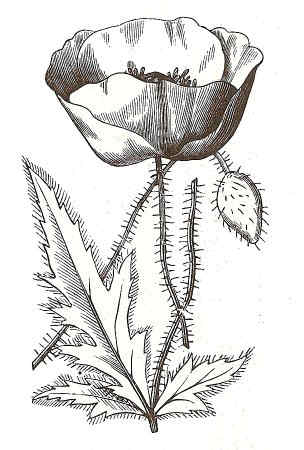 mucosa. At the same time, considering its content in alkaloid rhoeadine, helps fight spasms and provides
mucosa. At the same time, considering its content in alkaloid rhoeadine, helps fight spasms and provides 